Will College Get in the Way of Your Kids’ Education?
April 28th, 2015 // 4:05 pm @ Oliver DeMille
Will College Get in the Way of Your Kids’ Education?
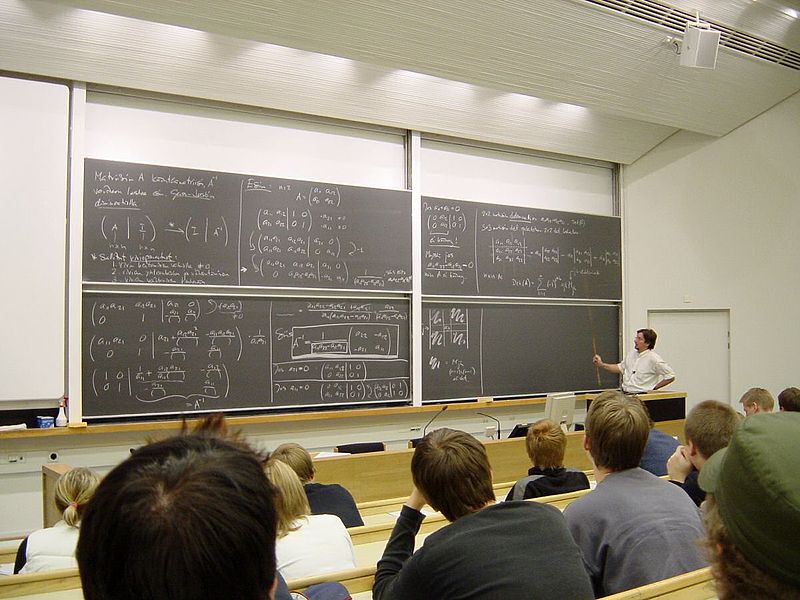 What a controversial question!
What a controversial question!
In fact, it’s downright politically incorrect. For many in the current generation of parents, this is akin to cultural heresy. But let’s think about it. The top colleges depend on the SAT, or in a few cases, the ACT, and later, once students are accepted and enrolled, these schools frequently employ multiple-choice exams of the same ilk.
If such testing is our national educational scoreboard—and it is—we have a problem. As you know if you’ve read my articles on “Homeschooling and Testing: Parts I and Part II” I’m not a real fan of the multiple-choice test as our national standard.
Actually, I readily embrace multiple-choice exams as one part of a student’s learning experience, along with essay exams, papers and projects as exams, oral exams, stand-and-show exams, and other types of testing that allow each student to truly demonstrate what he or she has learned, understands, and can do with the knowledge. But I’m against a one-size-fits all approach to testing (or to education itself, for that matter).
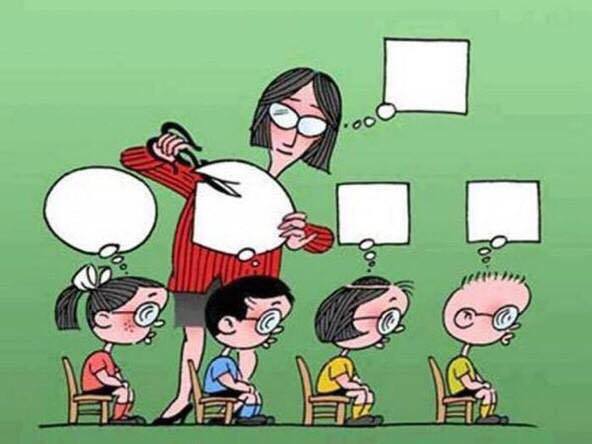 Like Rachel Lynde teaches in Anne of Green Gables, people who have never been parents usually think that there is one good way to parent—but people who have had children know that there is truly a different right way to parent for each child. People truly are different. This lesson is essential, and our modern testing system forgets about it.
Like Rachel Lynde teaches in Anne of Green Gables, people who have never been parents usually think that there is one good way to parent—but people who have had children know that there is truly a different right way to parent for each child. People truly are different. This lesson is essential, and our modern testing system forgets about it.
That’s bad for our nation and our future.
So, yes, I’m opposed to the way many modern classrooms teach to the standardized multiple-choice tests instead of teaching to the student. Each student’s learning should be individualized, personalized, and guided by one or more caring, committed mentors.
Education Job Training
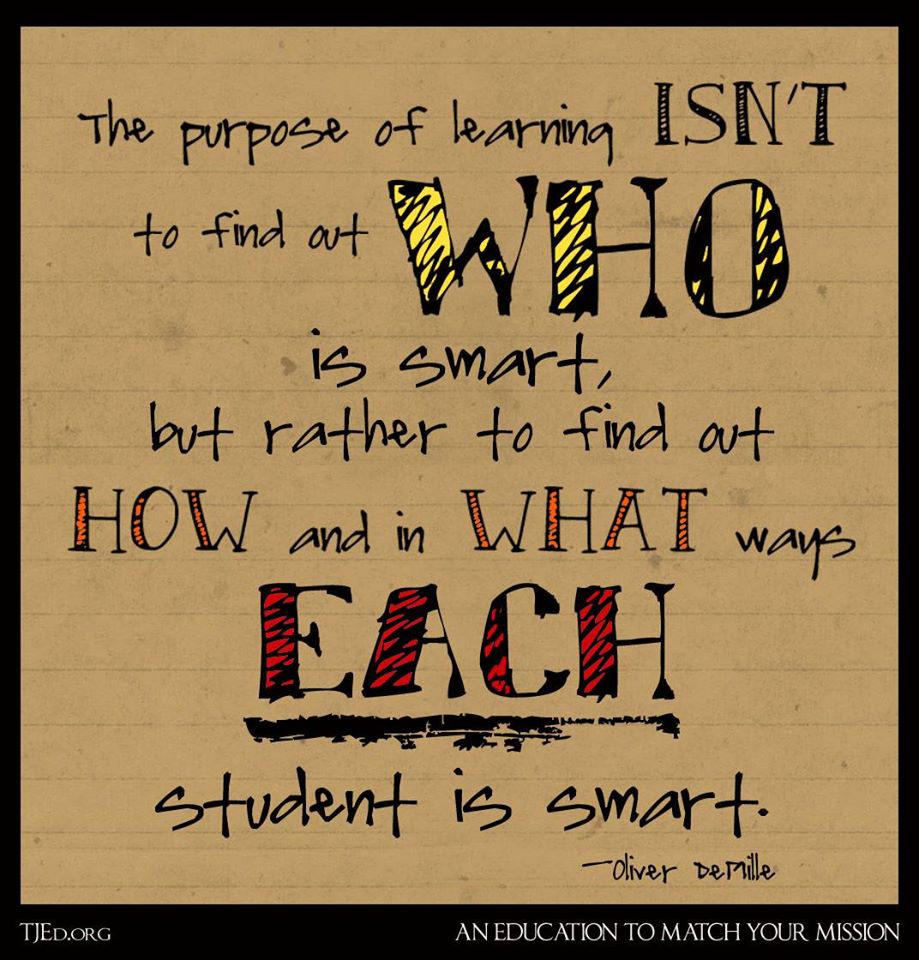 Ideal? Yes! And that’s what our children deserve. Every single one of them. Why would we settle for anything less than the highest ideals in something as important as the education of our children and grandchildren?
Ideal? Yes! And that’s what our children deserve. Every single one of them. Why would we settle for anything less than the highest ideals in something as important as the education of our children and grandchildren?
Shame on anyone who suggests anything less than the ideal!
When I see a nation that calls itself a meritocracy but whose highest court, presidency, and a disproportional number of top corporate leaders only come from the Ivy League—at least for the past two decades—and, to get into the League requires high scores on standardized multiple-choice tests, I shake my head. It’s a serious problem.
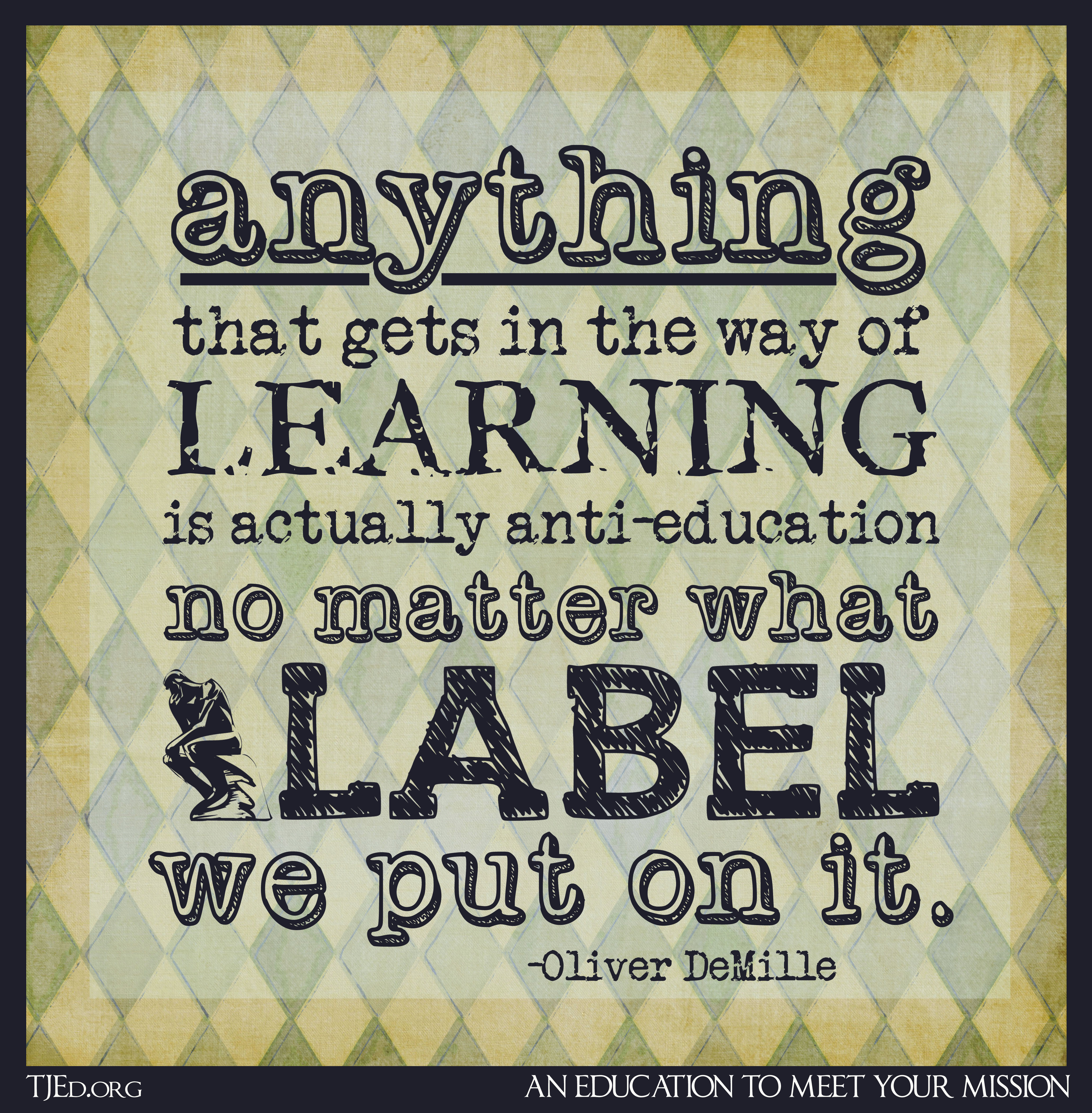 Why? Because such a system is not a meritocracy at all. There many statistics about making more money in life after graduating from a top school, and about making more if you’ve finished college, but there is one that really stands out. Most people don’t know about it, but it’s true. The statistics are clear: on average, the richer the family of the student who takes the SAT, the better the student scores. (Leon Botstein, TIME, March 24, 2015)
Why? Because such a system is not a meritocracy at all. There many statistics about making more money in life after graduating from a top school, and about making more if you’ve finished college, but there is one that really stands out. Most people don’t know about it, but it’s true. The statistics are clear: on average, the richer the family of the student who takes the SAT, the better the student scores. (Leon Botstein, TIME, March 24, 2015)
So, of course these students make more money in their life. In fact, the students of the wealthy who don’t complete top colleges also do financially better, on average, than the students of the poor or middle class—including many of those who do graduate from college. Call it elitist, aristocratic, or whatever you want, but this system isn’t a genuine meritocracy.
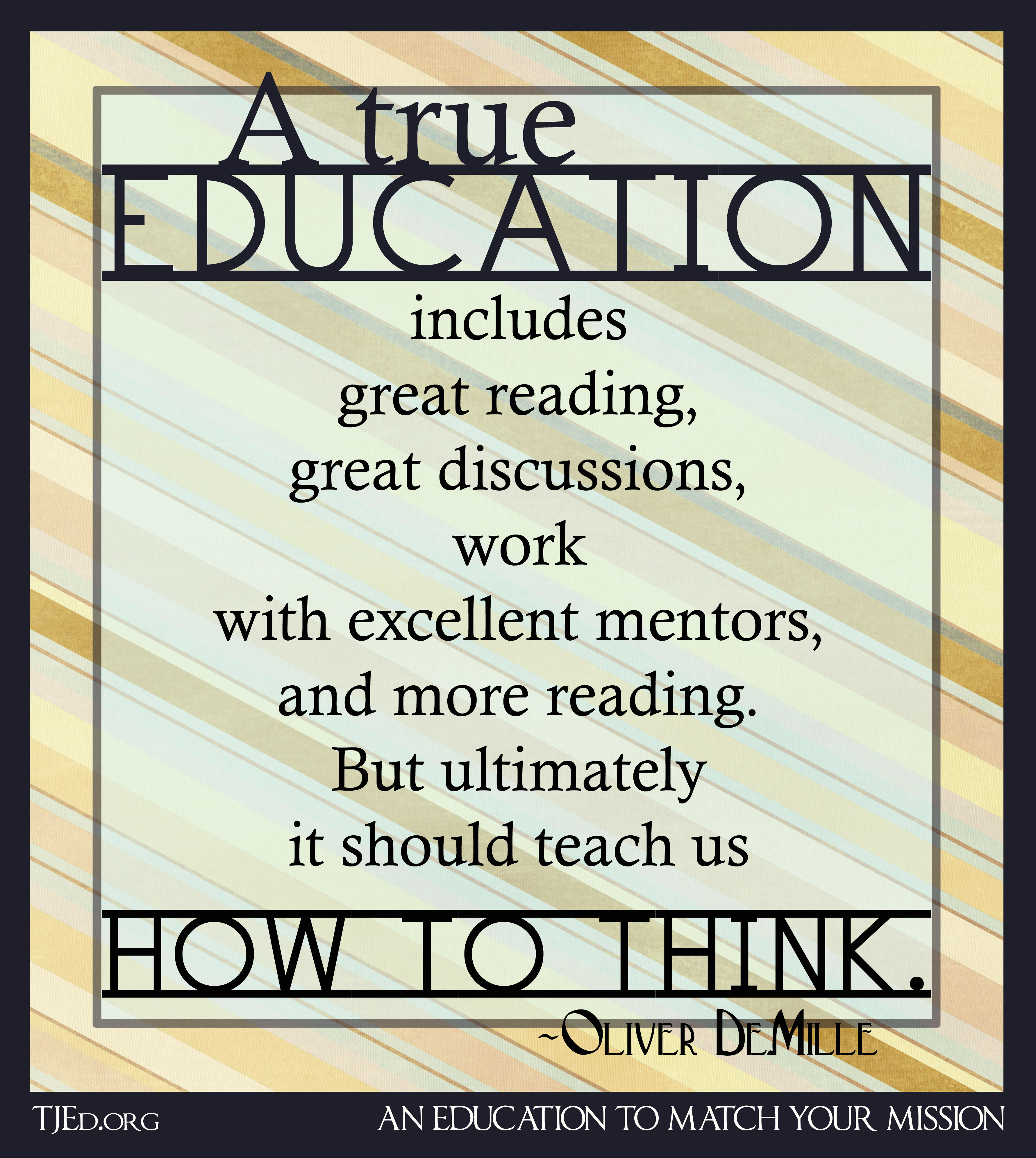 The common response to such a conversation is that universities need such tests to decide which applicants to accept—since college is all about job training nowadays. Well…I’m going to let that pass without argument, even though I very much disagree that universities should be mainly about career training.
The common response to such a conversation is that universities need such tests to decide which applicants to accept—since college is all about job training nowadays. Well…I’m going to let that pass without argument, even though I very much disagree that universities should be mainly about career training.
But if schools are going to focus on career prep, then multiple-choice tests as the constant in the system are deeply flawed. As Leon Botstein wrote in TIME magazine: “The SAT is part hoax, part fraud.” The magazine also called it “a scam”. (Ibid., cover, 17) Why? Because, in Botstein’s words:
“[T]he test can’t predict a kid’s future…. As every adult recognizes, knowing something, or knowing how to do something, in real life is never defined by being able to choose a ‘right’ answer from a set of possible options (some of them are intentionally misleading) put forward by nameless test designers.
“No scientist, engineer, writer, psychologist, artist or physician pursues his or her vocation by getting right answers from a set of prescribed alternatives that trivialize complexity and ambiguity.” (Ibid., emphasis added.)
Quality tests reflect reality, not an imaginary matrix that allows a few experts to determine what they want our whole nation of children to learn (or not learn), and which type of learner they prefer to favor, whom they want to succeed. The key phrase in the whole subject of standardized, national testing such as the ACT and SAT comes from the same TIME article: “nameless test designers.”
A Skewed Approach
This is incredibly important to the future of our society. If the test writers were widely and openly known, by name, with a bio and a video of each of them talking about their core beliefs, political and cultural views, most important aspirations and goals, and perspectives on various important current issues and societal concerns, such tests would almost immediately end.
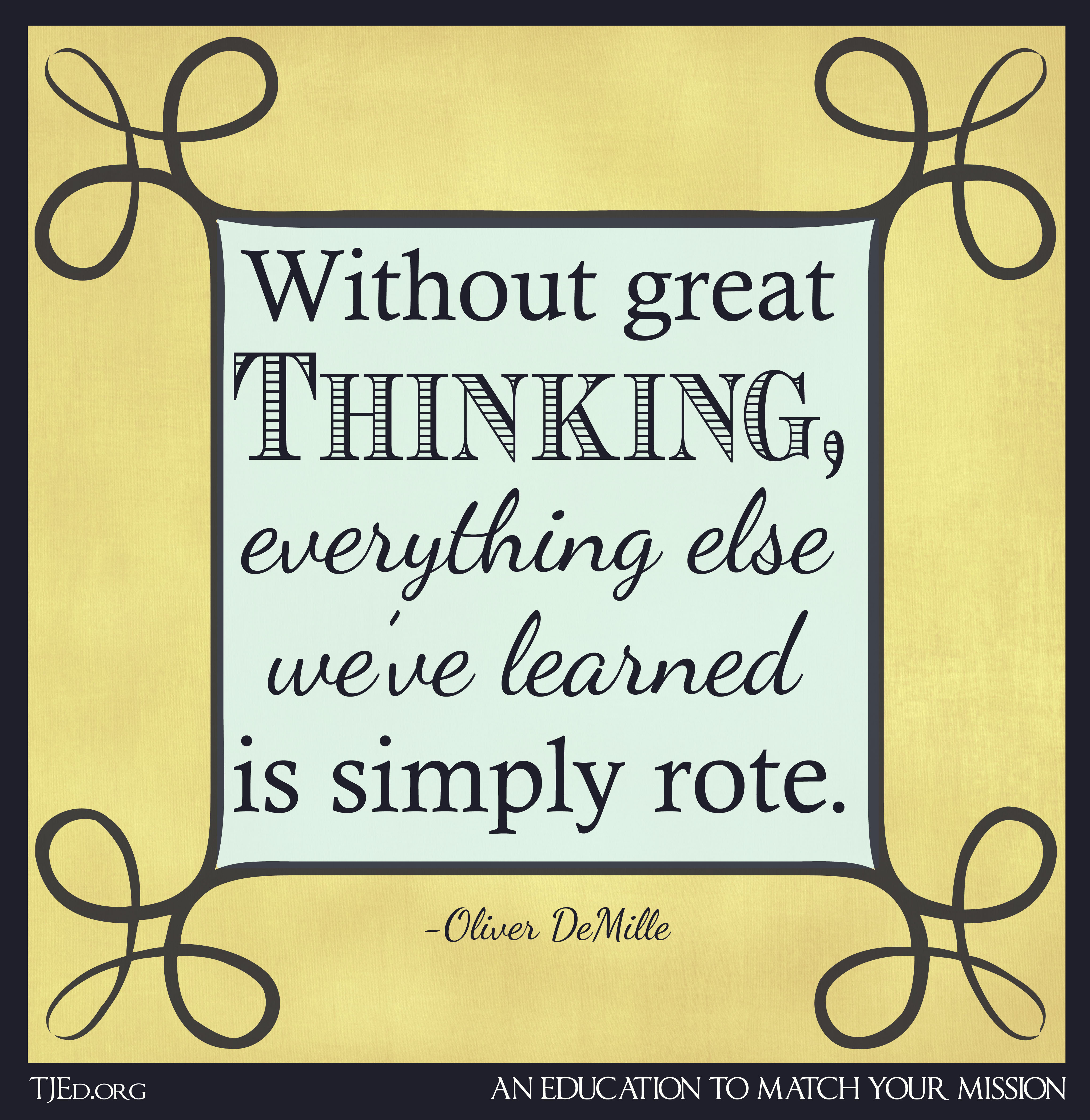
Seriously.
Parents and educators would watch such video clips (easily posted online with today’s technology), and the tests would immediately lose their credibility. I don’t say this because I know the test designers. I don’t. But I am convinced, based on reading and analyzing many of these exams, that they have an agenda.
How could they not? They are the Choosers in our “meritocracy.” They are the Givers. Their exams determine who will win and who will lose the contest—to get into the top institutions of higher learning. They are much more powerful than the Electoral College or the Senate Judicial Committee. In fact, to a large extent, they unofficially but actually choose who will or won’t be eligible for selection by these very groups in the future.
If they openly told us who they are, why they write the tests the way they do, and what they stand for and against, we could evaluate whether we want our kids and grandkids to have the kind of education that is specifically taught in most schools (for the very purpose of excelling on exams written by, planned, and designed by these people). With such transparency, even if they maintained the support of a few, they would lose the support of many others.
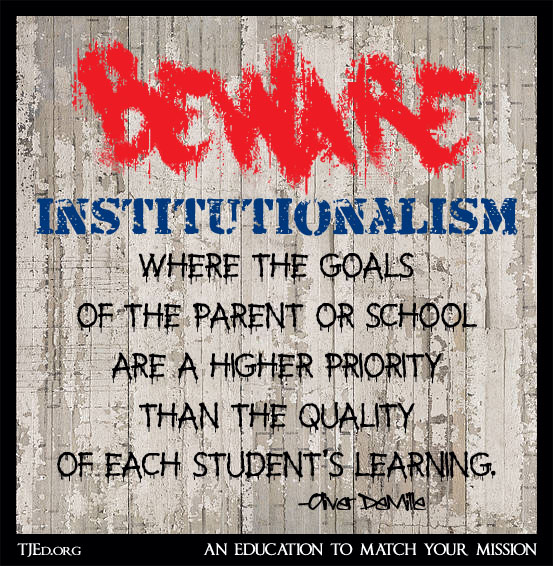 And that would be good for our nation. Other types of testing would arise, and the market would support other competing agendas—by other test designers with competing views and goals—not just the one proscribed by this generally unknown group of “Givers” who select our future national leaders each time they create, approve, and/or reject a test question.
And that would be good for our nation. Other types of testing would arise, and the market would support other competing agendas—by other test designers with competing views and goals—not just the one proscribed by this generally unknown group of “Givers” who select our future national leaders each time they create, approve, and/or reject a test question.
If we’re going to continue to be nation run by the test designers (who parents and teachers unwittingly hold up as the key to each child’s future), we should interview each of them and know that our kids are in good hands. If they aren’t open to such transparency, then why do we give them so much power over our children? And over our nation’s future?
Building a child’s education around meeting the demands and agendas of this group of unseen people—simply because it is “necessary for college,” at least if we teach to the test (and the more people care about the test, the more likely they are to do this)—is a bit strange. It’s akin to living in the 19th Century and using leeches to bleed a sick person because the “experts” assure us it is an excellent practice.
Really? Is that how we want to approach education?
The Way Things Are
I’m all for great education. For rigor and depth and intense study—especially among teens and college-age learners. I think testing is an important part of quality learning.
But the current system has it all wrong.
If your young person gains an education that is defined and driven by the standardized national tests in math, science, social studies, and language arts, then yes, college has very much gotten in the way of his or her education. It has narrowed it, milked out much of the natural passion for learning, and infused it with large doses of rote.
That’s what teaching to the tests usually requires. It has also bent your child’s education in a direction with a specific social/political agenda that many parents don’t support—but don’t know about.
Of course, it’s important to note that for the most part teachers have no control over this. Many teachers manage to do an excellent job of real teaching even though they have this system to overcome. And, as mentioned, few parents realize what is actually going on. They just want their kids to get into a good college.
In truth, I have no problem with young people taking these standardized exams. To get into college, it’s necessary. So take them. Sure.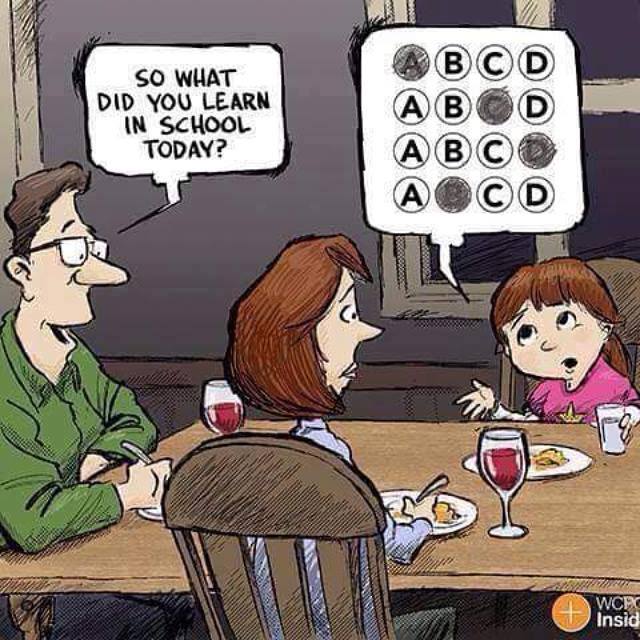
But the problem arises, 1) in throwing out some of your child’s great educational opportunities to focus on teaching to the tests, and 2) in seeing their test scores and thinking you’ve won, or lost.
And, on the national level, the even worse problem is 3) that we’re no longer much of a meritocracy, because we’ve turned over the determination of “merit” almost exclusively to a group of behind-the-scenes “Givers”.
Far too many parents, educators, and others just go along with all three of these problems because “that’s the way things are.”
But they shouldn’t be this way.
And that’s my point. That’s what the idea of America was once all about—to make things the way they should be, to improve things that aren’t right, to fix the broken, and to choose true principles over bad customs. To put what’s right ahead of mere profit or promotion.
The Important Questions
These are by far the most important lessons in anyone’s education.
By far!
Without these lessons, no education is complete.
We can still teach these things, and parents have a lot of power to do so. But these things aren’t being taught on the SAT or ACT, nor in the teach-to-the-test lessons that precede these exams and dominate many schools. Nor, sadly, are they taught in most of the college classrooms that come after the long-coveted Elite University acceptance letter.
They’re going to have to be taught elsewhere.
Which brings us to this one central, vital, question:
How, where, and from whom are your kids going to learn them?
Seriously: Where?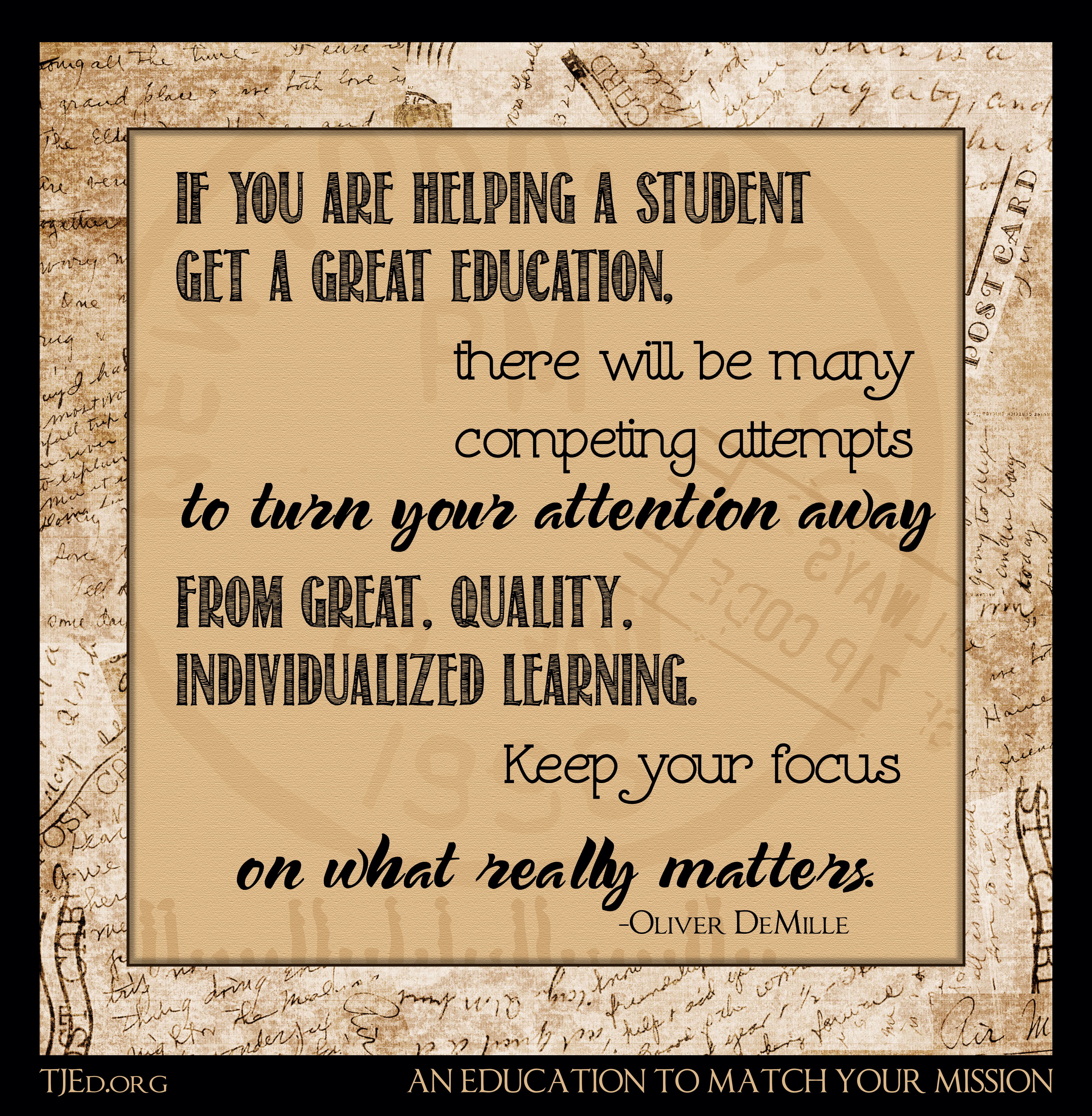
From whom?
Not most schools. Not most universities. Not TV or the movies. Not surfing the Internet.
If parents don’t teach them, they probably won’t get taught.
And that’s going to drastically influence the future of America.
Which brings us to the final test, the real exam, the essential question every parent needs to answer:
What are you going to do about this in your home?
Here’s what we’re doing about it:
Join us!
Category : Aristocracy &Community &Culture &Current Events &Education &Generations &History &Leadership &Liberty &Mission












Sherri Einfeldt
10 years ago
Thank you, thank you, thank you!!! I am a junior high teacher in Bountiful and I NEVER give multiple choice tests. Never have, never will. They are an absolute farce. They do not measure understanding or mastery. It’s all about guessing. And you are so right… they are usually written so badly. It makes me so angry. I have been saying this for years, and it is so nice to have someone agree with me! I’ll continue to “fight” for better assessments.
Allen Levie
10 years ago
Thank you for the reminder. I’ve been away from the non-homeschool leadership classroom as a teacher for a while and I’d forgotten about the power of tests. I need to build a testing regiment in my own life using all of the styles in their proper place. I wonder what this should look like.